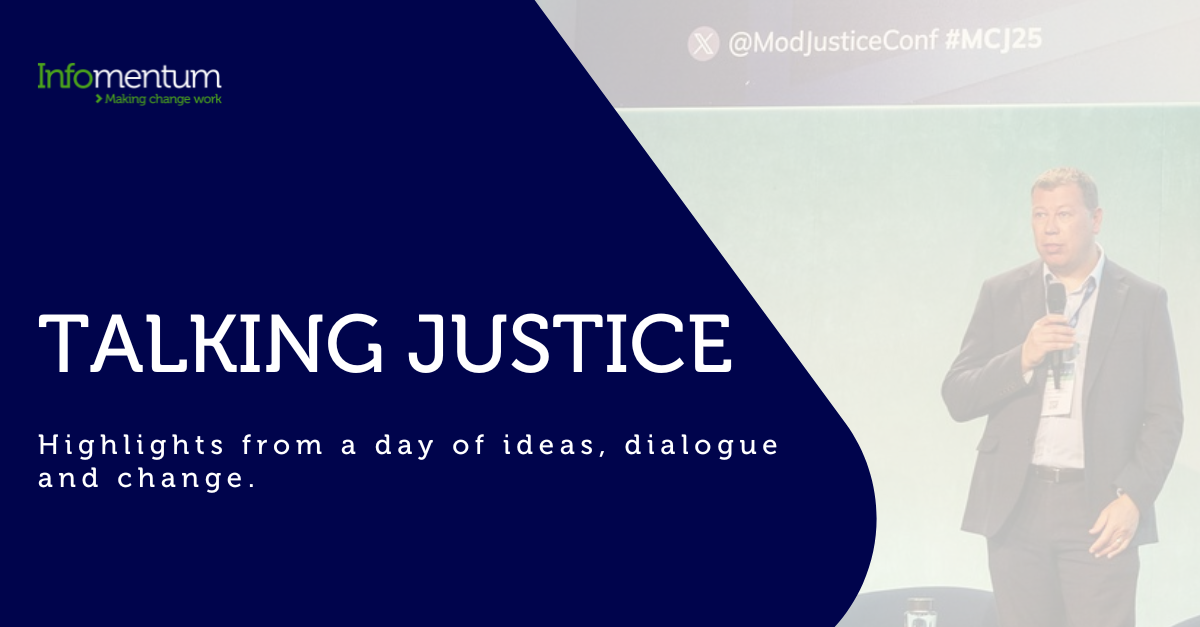Never as a society have we been as open as we are today, though it’s a movement that has seemingly bypassed the public sector. In the third and final blog post in our series around thinking smart in the public sector, we look at the main challenges and barriers when it comes to data sharing. We also suggest ways and methods of how the UK public sector can embrace a mindset of collaboration for a more positive future for all.
At our recent event, much of the discussion centred around one topic - collaboration. The notion is a simple one - local government has lots of information but doesn’t know what to do with it. Consequently, it remains under-used, under-utilised and under-appreciated. For over an hour key figures in the UK public sector debated what needs to be done in order to realise a culture of sharing for the greater good. As ever, our chair and public sector advisor, David Wilde, boiled the issue down to a simple question “how can the public sector get over itself and start working together to make stuff happen?”
How can the public sector get over itself and start working together to make stuff happen?
- David Wild
The priority problem for public sector
One of the most passionate responses to the question came from public sector technology expert Hilary Simpson, who suggested that breaking down silos of information sharing is the number one problem for the public sector. Hillary said, “There are loads of tools available. For instance, the Information Sharing Gateway (ISG) enables local authorities to put all their information sharing agreements and privacy impact assessments with partners in one place. It is the best and simplest way to democratise and make transparent the data flows between organisations. It is also cheap and developed by a charitable partnership so there is no reason not to do this.”
It’s hard to argue with the above example. The ISG has been developed to improve and modernise the administration and risk assessment of information sharing in the public sector, saving a monumental amount of time and GDPR compliance. Hilary’s argument is that people aren't using this platform because they simply don't know it exists - hopefully, now they do. As an advocate of collaboration, Hillary is a loud and influential voice when it comes to sharing best practice - you can find other useful tools and ideas on her blog.
Paralysis by analysis
While the public sector may possess an incredible amount of useful data, it is so disparate and unmanaged that nobody is sure what to do with it. This is a ‘paralysis by analysis’ scenario, whereby each organisation is so busy attempting to restore order to its own data set that it neglects to make it public. This is exacerbated by the fact no individual or organisation wants to put their head above the parapet when it comes to making information public that might be incomplete or downright wrong.
Of the evening's other guests said, “CIOs prioritise working with private enterprise but are embarrassed by the data they have - it’s bad. Yet the thing is, everybody is in the same boat. It would be much better if we appreciated that everybody has bad data as well as good and perhaps if we shared it, we might end up with better data?”
This goes beyond the linear transaction of data sharing and collaboration and points to more sinister issues holding the public sector back - politics and self-preservation.
Looking out for No.1
For years, the public sector has been programmed to be self-interested. This has created an inward, rather than outward, looking culture at an organisational level. Public sector bodies are reluctant to open up to another council or body at the risk of exposing weakness, highlighting flaws or placing the organisation in a negative light in comparison and risk further cuts to funding. Over time, this has generated a national attitude of competitiveness, rather than collaboration. A senior executive involved in business change for Homes England said, “Just in London there are 33 local authorities all doing the same thing differently - it’s madness. There is a mentality that sniffles collaboration - everybody wants to lead, nobody wants to follow.”
You’re not punished for doing the same old thing. You’re not rewarded for coming up with great new ideas.
When this is drilled down to an individual level it simply means that people choose the safe, no-risk and reliable option so as not to disturb the status quo. This comment, highlighted in our previous post, captures the situation perfectly, “In the public sector, you’re punished for the risk that doesn’t come off. You’re not punished for doing the same old thing. You’re not rewarded for coming up with great new ideas. It’s obvious that to keep the status quo, you’ll revert to the one thing you know works - irrespective of cost.”
Cuts to funding is prompting collaboration
Thankfully, there appears to be light at the end of the tunnel. In perhaps the ultimate cloud-and-silver-lining scenario, what our group of experts have found is that the continual cuts to funding are prompting greater collaboration. It is pushing organisations to work together and, by proxy, this means sharing ideas and best practice. This self-perpetuating cycle means that the more collaboration takes place, the better, slicker and quicker processes and inter-organisational relationships become.
However, while progress is being made, we are at the beginning of a long journey. The message around collaboration needs driving through the country. In fact, how we can educate in a sustainable level was underlined by the co-founder, Fudgelearn who said, “The challenge hereon in is clear as day - it is about education and reforming the mindset at a C-Level to make it happen.”
Getting a public sector fit for purpose
So what does the future hold for the UK public sector? While there are endemic and systemic issues, what we have also seen is that there is a desire and hunger to bring the UK public sector into the 21 Century and build something that will not need another root and branch review in a generation’s time.
We have heard from leading pioneers from a variety of backgrounds but all with the ambition to challenge the status quo. Yet, irrespective of the issue, perhaps the overriding theme of the evening was the desire to do things differently and evoke positive change in the public sector. Whether it is data sharing, working with SMEs or engaging with new techniques and technology, the message is clear - that even the smallest and most simple changes can sometimes yield the biggest results.







